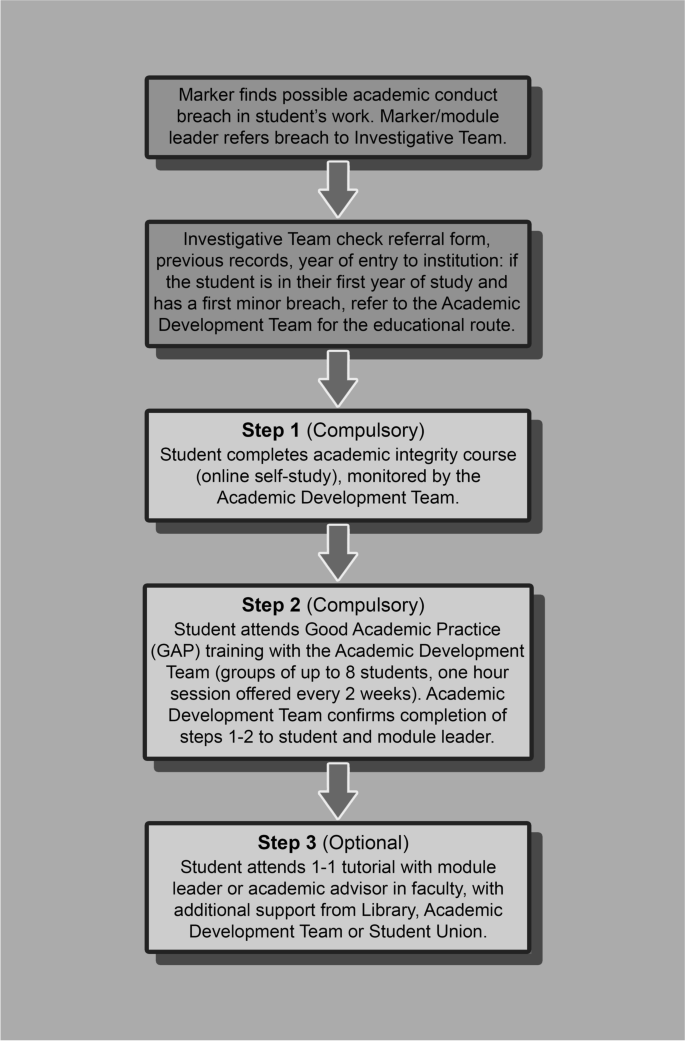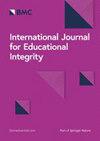检查和改进机构学术诚信政策、程序、教学和支持方面的包容性实践
IF 6.9
Q1 EDUCATION & EDUCATIONAL RESEARCH
International Journal for Educational Integrity
Pub Date : 2022-06-23
DOI:10.1007/s40979-022-00108-x
引用次数: 1
摘要
本研究旨在分析一所英国高等教育机构在教学、支持、政策和程序方面的学术诚信包容性实践。通过两组利益相关者访谈收集数据:三名经历过学术行为调查的弱势群体学生;11名在学术诚信方面发挥重要作用的人员(教学、学生支持、图书馆、调查、高级管理、学生会)。第三组数据包括四份机构学术诚信文件,这些文件是根据满足学习通用设计原则的包容性来分析的。该研究得出的四个主要发现是:学术行为过程使学生产生高度焦虑,尤其是与感知判断相关的焦虑;学生难以理解缺乏一致性和不符合包容性标准的学术诚信文件;来自某些背景的学生,包括扩大参与,残疾学生和国际非母语人士,需要更多的机构支持,以遵循学术行为流程并吸收预期的实践;工作人员都愿意努力发展更具包容性的做法。研究结果导致修订,更具包容性和教育机构的学术行为程序。这对实践的启示是,迫切需要关注改善学术诚信的包容性方法。本文章由计算机程序翻译,如有差异,请以英文原文为准。

Examining and improving inclusive practice in institutional academic integrity policies, procedures, teaching and support
This research aimed to analyse inclusive practice in academic integrity in the teaching, support, policies and procedures involved at one UK HE institution. Data was collected through two sets of stakeholder interviews: three students from disadvantaged groups who had experienced academic conduct investigations; eleven staff with key roles in academic integrity (teaching, student support, library, investigations, senior management, Student Union). A third set of data comprised four institutional academic integrity documents which were analysed in terms of meeting Universal Design for Learning principles for inclusion. The four main findings emerging from the study are: academic conduct processes create high levels of anxiety among students, particularly related to perceived judgement; students experience difficulty understanding academic integrity documents which lack consistency and do not meet inclusive criteria; students from certain backgrounds including widening participation, students with a disability and international non-native speakers need more institutional support in order to follow academic conduct processes and assimilate expected practice; there is a willingness among staff to try to develop more inclusive practice. The research findings led to a revised, more inclusive and educative institutional academic conduct procedure. The implication for practice is that attention is urgently needed to improve inclusive approaches to academic integrity.
求助全文
通过发布文献求助,成功后即可免费获取论文全文。
去求助
来源期刊

International Journal for Educational Integrity
EDUCATION & EDUCATIONAL RESEARCH-
CiteScore
6.90
自引率
26.10%
发文量
25
审稿时长
22 weeks
 求助内容:
求助内容: 应助结果提醒方式:
应助结果提醒方式:


